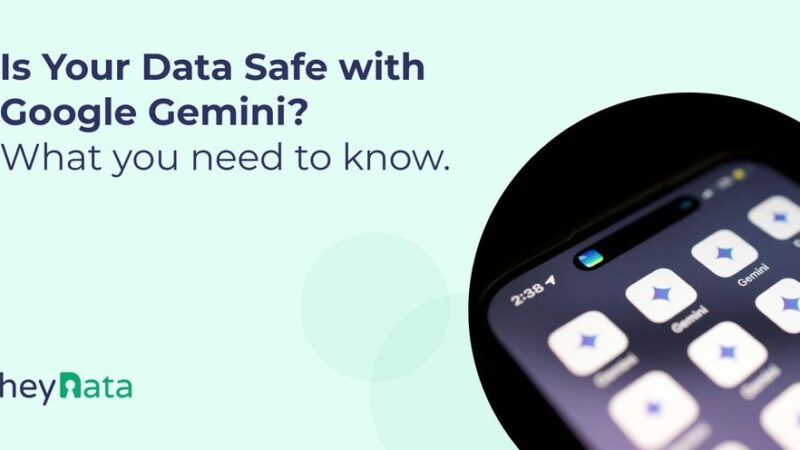Understanding Data Privacy Concerns with Google Gemini for SMEs

Is Your Data Safe with Google Gemini? What You Need to Know
In today’s swiftly evolving digital environment, small and medium-sized enterprises (SMEs) are increasingly turning to advanced artificial intelligence technologies, such as Google’s Gemini Apps, to enhance their operations. However, as businesses adopt these innovative tools, they must also remain vigilant about the privacy implications that come with them. From understanding the nuances of Gemini’s data management practices to implementing effective privacy strategies, companies can maximize the advantages of AI while safeguarding sensitive information.
Understanding Google Gemini
Previously known as Google Bard, Gemini is an advanced AI model created by Google, designed to assist users and SMEs in generating content across various formats, including text, images, audio, and video. The introduction of Gemini Advanced, a premium version available through Google One subscriptions, offers enhanced capabilities for understanding complex instructions. This allows users to provide more detailed prompts and obtain richer contextual responses.
Gemini vs. Bard: Key Differences
While both Gemini and Bard are products of Google, they serve distinct purposes. Gemini is a comprehensive platform that aids in content creation and search engine optimization (SEO), providing various tools tailored for businesses. In contrast, Bard functions as a conversational AI chatbot based on the LaMDA model, enabling companies to engage in personalized customer interactions.
What is Google Bard Used For?
Similar to ChatGPT, Google Bard is a versatile tool for brainstorming and collaboration. It supports users in creating essays, articles, emails, stories, and even poetry. Recent enhancements have also improved Bard’s capabilities in coding and debugging. However, Google advises that users should view Bard’s output as a starting point rather than a definitive solution, as the AI continues to evolve.
Data Collection and Storage with Gemini
User data from Gemini Apps is stored in Google Accounts for a default period of 18 months. Users can adjust this retention period to as short as three months or extend it to 36 months. For those who prefer not to have their conversations saved, it is possible to disable activity tracking. However, even with this feature turned off, conversations will still be retained for up to 72 hours to support service functionality and feedback processes.
Human Review of Data
Google may retain user data for up to three years to allow human reviewers to analyze and annotate it. This information is stored separately and is not linked to individual Google Accounts. The insights gained from this data contribute to the development of generative machine-learning models, helping to improve the responsiveness of AI-driven tools over time.
Third-Party Data Sharing
Using Gemini Apps can also result in data sharing with third parties. If users deactivate the Gemini Apps Activity setting, other settings like Web & App Activity may still collect data. When integrated with other Google or third-party services, data may be processed according to their respective privacy policies.
How to Protect Your Data Privacy on Gemini Apps
To ensure the confidentiality of sensitive information while using Gemini Apps, consider the following best practices:
- Be Cautious with Content: Avoid sharing confidential information that you wouldn’t want human reviewers to access.
- Limit Data Input: Only provide information you are comfortable allowing Google to use for product improvement and machine learning purposes.
- Review Privacy Settings: Regularly check and update your privacy settings on Gemini Apps, and stay informed about any changes to privacy policies.
- Invest in Compliance Training: Equip employees with knowledge about regulations like GDPR through comprehensive training programs.
- Opt-Out Options: Utilize the option to turn off Gemini Apps Activity to prevent your conversations from being reviewed for dataset creation, keeping in mind that data may still be stored briefly for operational purposes.
As businesses increasingly adopt AI technologies like Google Gemini, understanding the associated privacy risks and implementing effective strategies is essential. This ensures that while they leverage the power of AI, they also protect their sensitive data and maintain user trust.

